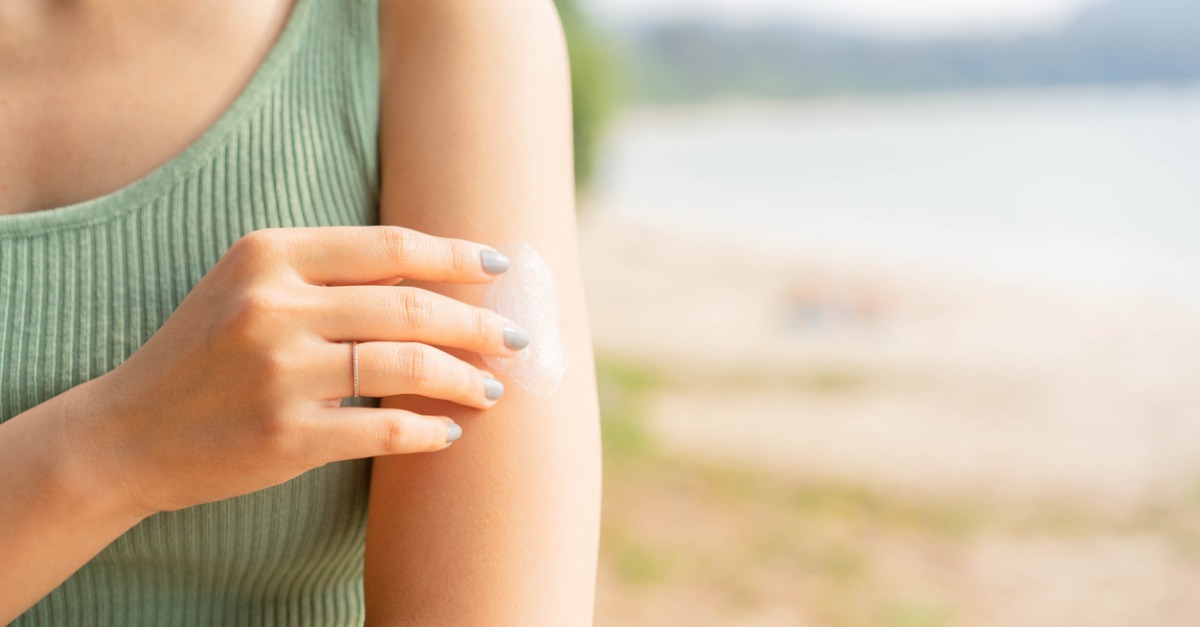May is Skin Cancer Awareness Month, but it brings our focus to a health topic that deserves attention every month. With more than five million cases diagnosed each year, skin cancer is the most common form of cancer in the U.S. Fortunately, it’s also the most preventable.
Most skin cancers are caused by excessive exposure to the sun’s UV rays. Being in the sunshine for a certain amount of time is good for you, but there are ways to keep it from harming you. Here’s a look at how to protect the skin you — and your loved ones — are in.
Slather Sunscreen
Even when it is cloudy outside, the sun’s damaging UV rays can penetrate the clouds then bounce off water, glass, and sand to cause even more damage. They are even more powerful on bright, sunny days. Wearing sunblock in any season — even if you have darker skin — is one of the best ways to prevent skin cancer.
The MD Anderson Cancer Center suggests using a sunscreen with SPF of 30 or more, and that offers both UVA and UVB protection. “Also make sure the sunscreen you choose contains zinc oxide or titanium dioxide,” they recommend.
Putting sunblock on once won’t be enough, either. “Ideally, sunscreen should be reapplied every two hours, or more frequently if you are swimming or sweating heavily,” Joshua Zeichner, the director of cosmetic and clinical research in dermatology at New York City’s Mount Sinai Hospital advises. You may also need to wear more than you think, according to experts at The Skin Cancer Foundation. Rub “a nickel-sized dollop to the face alone,” they say. “If you’re using a spray, apply until an even sheen appears on the skin.”
Stay Out of the Sun
You may not need an umbrella in the sun, but staying out of direct, intense sunlight will keep your skin safer. Having fun inside or in the shade between 10 AM and 4 PM ET (which are the brightest parts of the day) is what experts at the American Skin Association recommend.
Cover it Up
Sunscreen works well, but it sometimes needs help. When you’re outside, “Broad-brimmed hats, bucket hats with wide brims and legionnaire-style hats are effective methods of sun protection to the head, ears, face and neck,” says the Australian Radiation Protection and Nuclear Safety Agency.
“Long-sleeved shirts, long pants, or long skirts cover the most skin and are the most protective,” the American Cancer Society also advises. Keep in mind that dark colors reflect more of the sun’s rays than light colors, and loose-weave fabrics may not provide as much protection. Have fun with your sun-safe fashion by exploring clothes made with fabric that blocks harmful rays.
Know the Signs of Melanoma
The most dangerous form of skin cancer is melanoma. But if it is found and treated early, your survival rate increases. Pay attention to any new changes in your skin by using the ABCDEs of melanoma:
- A – Asymmetry: Most melanomas have an uneven shape.
- B – Borders: The borders of a melanoma are often scalloped or uneven.
- C – Color: Harmless moles and freckles are usually only one color, but a melanoma may also be white, blue, or red in places.
- D – Diameter (or also Dark): Melanomas may start small but grow larger than a pencil eraser. Also, they can be darker than other moles.
- E – Evolving: If you have a mole that changes size, shape, or color, or starts bleeding or itching, talk to your doctor right away.
At YourTown Health, we care about the skin you’re in from head to toe. If you have a new skin concern or want more advice about taking care of your skin and everything it covers, visit our website to contact us.

